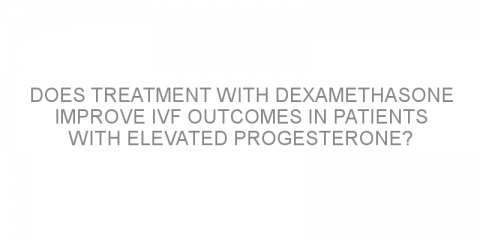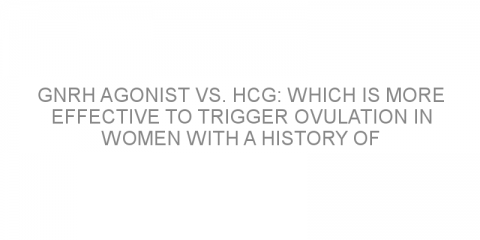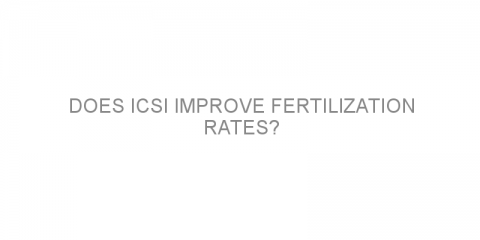In a nutshell This study investigated if dexamethasone (Ozurdex) improves the success of in vitro fertilization (IVF) in patients with elevated progesterone. They found that low-dose dexamethasone resulted in a higher birth rates following IVF. Some background During fertility treatment, women may undergo ovarian stimulation to...
Read MoreTreatment(s) already received-Ovarian stimulating drugs Posts on Medivizor
GnRH agonist vs. hCG: which is more effective to trigger ovulation in women with a history of follicular-endometrial asynchrony?
In a nutshell This study investigated the effects of GnRH agonist to stimulate ovulation in women with a history of follicular-endometrial asynchrony. They found that GnRH agonist was associated with higher rates of clinical pregnancy and live birth compared to standard hCG treatment. Some background One approach for treating unexplained...
Read MoreManaging ovarian hyperstimulation syndrome (OHSS): can kisseptin reduce the risk?
In a nutshell This study investigated the effects of kisseptin on the risk of ovarian hyperstimulation syndrome (OHSS) in high-risk women undergoing fertility treatment. The authors suggested that kisseptin treatment resulted in lower rates of OHSS compared to standard treatment. Some background One of the first procedures for the...
Read MoreSurgical versus medical treatment for PCOS: long term effects on fertility
In a nutshell This trial compared the long-term reproductive effects of two treatment strategies in women diagnosed with polycystic ovary syndrome (PCOS): laparoscopic ovarian drilling versus gonadotropin analogs. Some background If conservative treatments (such as weight loss) fail, women with PCOS may be treated with fertility drugs to induce...
Read MoreAgonists or antagonists during IVF?
In a nutshell This review compared the use of gonadotropin-releasing hormone (GnRH) agonists and antagonists in poor ovarian responders undergoing in vitro fertilization (IVF). Some background In vitro fertilization (IVF) is a complex process which requires tight medical control over the ovulatory cycle. To achieve such control, the...
Read MorePersonalized IVF using genetic endometrial testing
In a nutshell This trial investigated whether a new genetic test could predict the best time to undergo embryo implantation during in-vitro fertilization (IVF). Some background Some women undergoing IVF experience repeated implantation failure (RIF). RIF means that the fertilized embryos introduced into the uterus fail to implant and result in...
Read MoreDoes ICSI improve fertilization rates?
In a nutshell This study looked at in-vitro fertilization (IVF) outcomes in couples with unexplained infertility. Two egg fertilization techniques were compared: intracytoplasmatic sperm injection versus conventional insemination. Some background IVF involves the artificial joining of eggs and sperm in a laboratory dish. This is typically achieved...
Read MoreIs fallopian tube surgery a required infertility treatment?
In a nutshell This article looked at the different surgical options available for women who have trouble conceiving due to fallopian tube dysfunction. Some background The fallopian tubes (FT) connect the ovaries to the uterus. For a normal pregnancy to occur, an egg released by the ovary needs to travel through its...
Read MoreImproving pregnancy outcomes by genetically screening embryos
In a nutshell This article outlines the current methods available to improve in vitro fertilization (IVF) success rates in women over 35 years old. The authors discuss the outcomes of a single embryo transfer of an embryo that has been genetically selected. Some background IVF involves the artificial matching of a...
Read More









